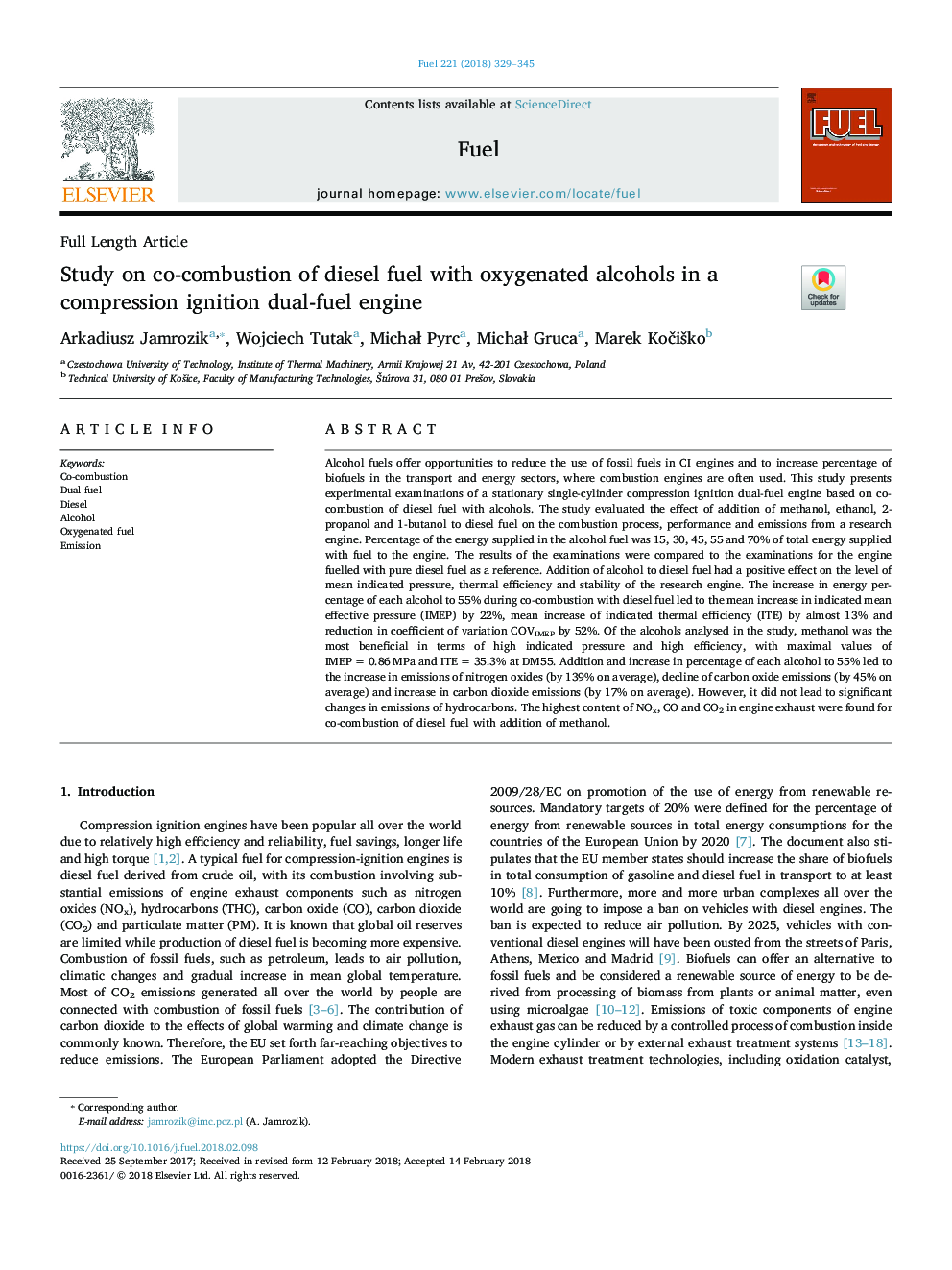| کد مقاله | کد نشریه | سال انتشار | مقاله انگلیسی | نسخه تمام متن |
|---|---|---|---|---|
| 6631557 | 1424943 | 2018 | 17 صفحه PDF | دانلود رایگان |
عنوان انگلیسی مقاله ISI
Study on co-combustion of diesel fuel with oxygenated alcohols in a compression ignition dual-fuel engine
ترجمه فارسی عنوان
مطالعه سوخت جامد سوخت دیزل با الکل های اکسیژن در یک موتور سوخت دیزل فشرده سازی
دانلود مقاله + سفارش ترجمه
دانلود مقاله ISI انگلیسی
رایگان برای ایرانیان
کلمات کلیدی
احتراق همگانی، دوگانهسوز، دیزل، الکل، سوخت اکسیژن انتشار،
موضوعات مرتبط
مهندسی و علوم پایه
مهندسی شیمی
مهندسی شیمی (عمومی)
چکیده انگلیسی
Alcohol fuels offer opportunities to reduce the use of fossil fuels in CI engines and to increase percentage of biofuels in the transport and energy sectors, where combustion engines are often used. This study presents experimental examinations of a stationary single-cylinder compression ignition dual-fuel engine based on co-combustion of diesel fuel with alcohols. The study evaluated the effect of addition of methanol, ethanol, 2-propanol and 1-butanol to diesel fuel on the combustion process, performance and emissions from a research engine. Percentage of the energy supplied in the alcohol fuel was 15, 30, 45, 55 and 70% of total energy supplied with fuel to the engine. The results of the examinations were compared to the examinations for the engine fuelled with pure diesel fuel as a reference. Addition of alcohol to diesel fuel had a positive effect on the level of mean indicated pressure, thermal efficiency and stability of the research engine. The increase in energy percentage of each alcohol to 55% during co-combustion with diesel fuel led to the mean increase in indicated mean effective pressure (IMEP) by 22%, mean increase of indicated thermal efficiency (ITE) by almost 13% and reduction in coefficient of variation COVIMEP by 52%. Of the alcohols analysed in the study, methanol was the most beneficial in terms of high indicated pressure and high efficiency, with maximal values of IMEPâ¯=â¯0.86â¯MPa and ITEâ¯=â¯35.3% at DM55. Addition and increase in percentage of each alcohol to 55% led to the increase in emissions of nitrogen oxides (by 139% on average), decline of carbon oxide emissions (by 45% on average) and increase in carbon dioxide emissions (by 17% on average). However, it did not lead to significant changes in emissions of hydrocarbons. The highest content of NOx, CO and CO2 in engine exhaust were found for co-combustion of diesel fuel with addition of methanol.
ناشر
Database: Elsevier - ScienceDirect (ساینس دایرکت)
Journal: Fuel - Volume 221, 1 June 2018, Pages 329-345
Journal: Fuel - Volume 221, 1 June 2018, Pages 329-345
نویسندگان
Arkadiusz Jamrozik, Wojciech Tutak, MichaÅ Pyrc, MichaÅ Gruca, Marek KoÄiÅ¡ko,
